Evaluation of metacognition on study in psychology students
DOI:
https://doi.org/10.25057/21452776.1198Keywords:
metacognition, students, evaluation, psychologyAbstract
The present investigation evaluated the metacognition on the study in Psychology students of the University of Buenos Aires, and its association with the academic performance. Additionally, differences in metacognition were investigated according to age. A non-experimental, descriptive-correlational, and cross-sectional study was carried out. Participants were 197 university students (80% women and 20% men) between 18 and 48 years of age (M = 23.82, SD = 6.14), selected by a convenience sampling. The Inventory of Reflections on the University Study and a sociodemographic survey and academic data were administered. It was found that the students presented an average value of metacognition on the study of 118.68 with a deviation of 14.30, with a maximum score of 160, distinguishing three partial scores according to the type of metacognitive knowledge, namely, on the perception of oneself (M = 39.05, SD = 5.45, maximum score of 50), specific actions (M = 44.35, SD = 6.57, maximum score of 60), and self-monitoring in the study (M = 35.28, SD = 5.83, maximum score of 50). The analysis of the data revealed the existence of significant differences according to age in the level of metacognition. No association was found with academic performance. The information reported in this research is expected to be useful to teachers, psychologists, and other professionals in the educational field, in pursuit of the development of educational strategies that enhance learning and improve academic performance.
Author Biography
Rocío Giselle Fernández Da Lama, Universidad de Buenos Aires
Licenciada en Psicología, Universidad de Buenos Aires. Facultad de Psicología, Adscripta en Centro de Investigación de Psicología y Psicopedagogía, Pontifica Universidad Católica Argentina
References
Águila, E. (2014). Habilidades y estrategias para el desarrollo del pensamiento crítico y creativo en alumnado de la Universidad de Sonora (tesis Doctoral). Universidad de Extremadura, Badajoz, España. Recuperado de http://dehesa.unex.es/bitstream/handle/10662/1774/TDUEX_2014_Aguila_Moreno.pdf?sequence=1
AL-Baddareen, G., Ghaith, S., Akour, M. (2015). Self-Efficacy,
Achievement Goals, and Metacognition as Predicators of Academic Motivation. Procedia - Social and Behavioral Sciences, 191, 2068-2073. doi:10.1016/j.sbspro.2015.04.345
Alcántara A. (2006). Tendencias Mundiales en la Educación Superior: el papelde los organismos multilaterales. Revista IA Rev. Fac. Edu. UFG. 31 (1), 11-33. Recuperado de ile:///C:/Users/Nancy/Downloads/BENAVIDESlaEnsenanza.pdf
Bara-Soro, P. (2001). Estrategias metacognitivas y de aprendizaje: un estudio empírico sobre el efecto de la aplicación de un programa metacognitivo, y el dominio de las estrategias de aprendizaje en estudiantes de E.S.O, B. U. P y Universidad (Tesis doctoral). Universidad Complutense de Madrid, España. Recuperado de https://eprints.ucm.es/4765/1/T25562.pdf
Braginski, R. (2018). Informe con nuevos datos oficiales. Siente de cada 10 estudiantes no se reciben a tiempo en la universidad. Recuperado de https://www.clarin.com/sociedad/10-estudiantes-reciben-tiempo-universidad_0_B1QH9I7gm.html
Brown, A. (1987). Metacognition, executive control, self-regulation, and other more mysterious mechanisms. En F. Weinert, y R. Kluwe (Eds.). Metacognition, motivation and understanding (pp. 65-116). New Jersey, USA: LEA.
Campo, K., Escorcia, D., Moreno, M., Palacio, J. (2016). Metacognition, writing and academic performance in Colombian and French College students. Avances en Psicología Latinoamericana, 34 (2), 233-252. doi: 10.12804/apl34.2.2016.03.
Corominas-Rovina, E. (2001). La transición a los estudios universitarios. Abandono o cambio en el primero año de universidad. Revista de Investigación Educativa, 19 (1), 1127-151. Recuperado de https://core.ac.uk/download/pdf/132556546.pdf
De Miguel, M., Arias, J. (1999). La evaluación del rendimiento inmediato en la enseñanza universitaria. Revista de Educación, 320, 353-377. Recuperado de http://www.mecd.gob.es/dctm/revistadeducacion/articulosre320/re3201707982.pdf?documentId= 0901e7 2b8127086c
Ellis, R.; Goodyear, P., Prosser, M., O'Hara, A. (2006) How and what university students learn through online and face-to-face discussion: conceptions, intentions and approaches. Journal of Computer Assisted Learning, 22 (4), 244-256. doi: 10.1111/j.1365-2729.2006.00173.x
Escanero-Marcén, J., Soria, M., Escanero-Ereza, M., Guerra-Sánchez, M. (2013). Influencia de los estilos de aprendizaje y la metacognición en el rendimiento académico de los estudiantes de fisiología. Fundación Educación Médica, 16 (1), 23-29. doi: 10.4321/S2014-98322013000100005
Fernández, M. (06 de abril de 2018). Récord de inscriptos al CBC de la UBA: cuáles son las carreras más elegidas. Recuperado de https://www.infobae.com/educacion/2018/04/06/record-de-inscriptos-al-cbc-de-la-uba-cuales-son-las-carreras-mas-elegidas/
Flavell, J. H. (1976). Metacognitive aspects of problem solving. En L. B. Resnick (Ed.), The nature of intelligence (pp. 231-235). New Jersey, USA: Lawrence Erlbaum.
Flavell, J. (1979). Metacognition and Cognitive Monitoring. A new área of cognitive-developmental inquiry. American Psychologist,34 (10), 906-911. Recuperado de https://pdfs.semanticscholar.org/ee65/2f0f63ed5b0cfe0af4cb4ea76b2ecf790c8d.pdf
García-Manjón, J., Pérez-López, M. (2008). Espacio Europeo de Educación Superior, competencias profesionales y empleabilidad. Revista Iberoamericana de Educación, 46 (9), 1-12. Recuperado de file:///C:/Users/Nancy/Downloads/2444Manjon.pdf
García-Martínez, L. (2018). La autoevaluación: una alternativa constructiva para la metacognición y el rendimiento académico en un curso de Ingeniería Industrial. Educación en Ingeniería, 14 (27), 138-147. doi: 10.26507/rei.v14n27.949
González-Marqués, J., Suengas, A., Mayor, J. (1993). Estrategias Metacognitivas. Madrid, España: Editorial Síntesis.
Guadagni, A. (15 de junio de 2017). Por qué Argentina tiene más estudiantes universitarios que España. Recuperado de https://www.infobae.com/america/opinion/2017/06/15/por-que-argentina-tiene-mas-estudiantes-universitarios-que-espana/
Guadagni, A. (20 de noviembre de 2018). ¿Por qué tenemos más estudiantes universitarios pero pocos graduados? Recuperado de https://www.infobae.com/opinion/2018/11/20/por-que-tenemos-mas-estudiantes-universitarios-pero-pocos-graduados/
Hofer, B., Pintrich, P. (1997). The Development of Epistemological Theories: Beliefs About Knowledge and Knowing and Their Relation to Learning. Review of Educational Research, 67 (1), 88–140. doi: 10.3102/00346543067001088
Justice, E., Dornan, T. (2001). Metacognitive differences between traditional-age and nontraditional-age college students. Adult Education Quarterly, 51 (3), 236-249. doi: 10.1177/074171360105100305 ´
Karmiloff-Smith, A. (1992). Learning, development, and conceptual change. Beyond modularity: A developmental perspective on cognitive science. Cambridge, USA: The MIT Press.
King, P., Kitchener, K. Wood, P. (1994). Research on the reflective judgment model. In King, P., Kitchener, K. (eds.). Developing reflective judgment: Understanding and promoting intellectual growth and critical thinking in adolescents and adults (pp. 24-202). San Francisco, USA: Jossey-Bass.
Kuhn, D. (2000). Metacognitive Development. Current Directions in Psychological Science, 9 (5), 178–181. doi:10.1111/1467-8721.00088
Martínez-Fernández, J. (2004). Concepción de aprendizaje, metacognición y cambio conceptual en estudiantes universitarios de Psicología (tesis Doctoral). Universitat de Barcelona, Barcelona, España. Recuperado de http://diposit.ub.edu/dspace/bitstream/2445/42698/1/Tesis_final.pdf
Martínez-Fernández, J., Villegas, M., Martínez-Torres, M. (2004). Concepciones de aprendizaje y estrategias metacognitivas en universitarios venezolanos y españoles. Revista Latina de Pensamiento y Lenguaje, 12 (1), 21-35. Recuperado de http://www.redalyc.org/pdf/167/16723102.pdf
Mecau, N., Quevedo, L., Tello, L. (2012). La demora universitaria… ¿Un problema o una elección personal?. Argonautas, 2, 226-237. Recuperado de http://www.argonautas.unsl.edu.ar/files/17%20MERCAU%20QUEVEDO%20TELLO%20PDF.pdf
Mejía-Rodríguez, G., Muntada, M., Cladellas-Pros, R. (2018). Relación del funcionamiento Ejecutivo y Procesos Metacognitivos con el Rendimiento Académico en Niños y Niñas de Primaria. Revista Complutense de Educación, 29 (4), 1059-1073. doi: 10.5209/RCED.54640
Mokhtari, K., Reichard, C. (2002). Assessing Students’ Metacognitive Awareness of reading Strategies. Journal of Educational Psychology, 94 (2), 249-259. doi: 10.1037//0022-0663.94.2.249
O’Neil, H., Abedi, J. (1996). Reliability and Validity of a State Metacognitive Inventory: Potential for Alternative Assessment. The Journal of Educational Research, 89 (4), 234–245. doi:10.1080/00220671.1996.9941208
Osses-Bustingorry, S., Jaramillo-Mora, S. (2008). Metacognición: un camino para aprender a aprender. Estudios Pedagógicas, 34 (1), 187-197. doi: 10.4067/S0718-07052008000100011.
Ozturk, N. (2017). Assessing Metacognition: Theory and Practices. International Journal of Assessment Tools in Education, 4 (2), 134-148. doi: 10.21449/ijate.298299
Palacios, A., Schinella, G. (2017). Diseño y validación de un instrumento para evaluar la metacognición sobre el estudio en estudiantes de Medicina. Revista de Educación de la Universidad de Granada, 24, 9-28. doi: 10.30827/reugra.v24i0.70
Rodríguez-Lagunas, J., Hérnandez-Vázquez, J. (2008). La deserción escolar universitaria en México. La experiencia de la Universidad Autónoma Metropolitana. Revista Electrónica “Actualidades Investigativas en Educación”, 8 (1), 1-30.doi: 10.15517/AIE.V8I1.9308
Ruiz de Miguel, C. (2001). Factores familiares vinculados al bajo rendimiento. Revista Complutense de Educación, 12 (1), 81-113. Recuperado de https://revistas.ucm.es/index.php/RCED/article/view/RCED0101120081A/16850
Schraw, G., Dennison, R. S. (1994). Assessing Metacognitive Awareness. Contemporary Educational Psychology, 19 (4), 460–475. doi:10.1006/ceps.1994.1033
Souchay, C., Isingrini, M. (2004). Age related differences in metacognitive control: role of executive functioning. Brain and Cognition, 56 (1), 89-99. doi: 10.1016/j.bandc.2004.06.002
Tejedor-Tejedor, F., Muñoz-Repiso, A. (2007). Causas del bajo rendimiento del estudiante universitario (en opinión de los profesores y alumnos). Propuestas de mejora en el marco del EEES. Revista de Educación, 324, 443-473. Recuperado de https://dialnet.unirioja.es/servlet/articulo?codigo=2254218
UNESCO. (1998). Declaración mundial sobre la educación superior en el siglo XXI: una visión y acción. Recuperado de http://www.unesco.org/education/educprog/wche/declaration_spa.htm
UNESCO. (2014). Enseñanza y aprendizaje: lograr la igualdad para todos. Informe de seguimiento de la EPT en el mundo. Recuperado de http://unesdoc.unesco.org/images/0022/002261/226159s.pdf
Veeman, M., Spaans, M. (2005). Relation between Intellectual and Metacognitive Skills: age and Task Differences. Learning and Individual Differences, 15, 159-176. doi: 10.1016/j.lindif.2004.12.001
Vukman, K. (2005). Developmental differences in metacognition and their connections with cognitive development in adulthood. Journal of Adult Development, 12(4), 211-221. doi: 10.1007/s10804-005-7089-6
Vrugt, A., Oort, F. (2008). Metacognition, achievement goals, study strategies and academic achievement: Pathways to achievement. Metacognition and Learning, 3 (2), 123-146. doi.org/10.1007/s11409-008-9022-4
Young, A., Fry, J. (2008). Metacognitive awareness and academic achievement in college students. Journal of Scholarship of Teaching and Learning, 8 (2), 1-10. Recuperado de https://scholarworks.iu.edu/journals/index.php/josotl/article/view/1696
How to Cite
Downloads
Languages:
esDownloads
Published
Issue
Section
License
Copyright (c) 2019 Institución Universitaria de Envigado

This work is licensed under a Creative Commons Attribution-NonCommercial-ShareAlike 4.0 International License.
| Article metrics | |
|---|---|
| Abstract views | |
| Galley vies | |
| PDF Views | |
| HTML views | |
| Other views | |





